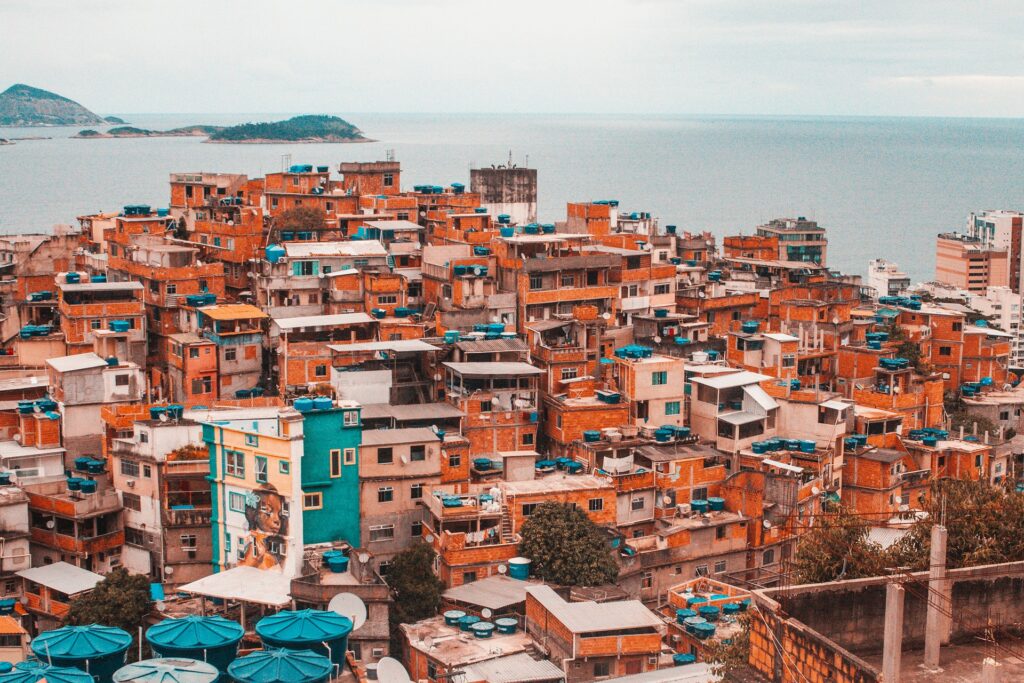The New Legal Framework for Water and Sanitation Services in Brazil and the Standardised Guidelines
Historically, Brazil’s water and sanitation infrastructure has consistently received the least investment compared to other sectors. As a result, progress has lagged behind and the country is still far from achieving full access for all households. According to SNIS (2022), there are still approximately 100 million households without access to sewage collection and treatment, which represents half of the country’s population. Regarding treated water, the situation is less dire, but there are nearly 50 million households without access to treated water supply.
In 2020, a major reform took place in the sector with Law No. 14,026/2020, better known as the New Legal Framework for Water, Sanitation, Drainage and Urban Waste Services. Among the approved changes, two stand out: the first was the opening of the market to private initiatives through Public-Private Partnerships (PPPs) to increase investments in the sector. The other equally important change was that of assigning to the National Water and Sanitation Agency (ANA) the task of establishing Standardised Guidelines for the sector at the federal level.
The Water Supply and Sanitation sector (WSS) in Brazil also includes drainage and urban waste services, and falls under the responsibility of municipalities. Municipalities are responsible for service provision and regulation, which can occur at the municipal, inter-municipal, or state level. Due to this peculiar situation, there are nearly a hundred subnational regulatory agencies in Brazil to oversee the provision of WSS services.
Within this context, the role of the ANA is to standardise the regulation, reduce transaction costs for operators, and increase legal security. It is expected that this standardisation will directly contribute to attracting the necessary investments for expanding service coverage to the entire Brazilian population, with estimated investments of around R$ 1 trillion Brazilian reais (approximately £157 billion British pounds).
The regulation standardisation performed by ANA covers all aspects of the sector in Brazil, including potable water supply, sewage collection and treatment, urban drainage, stormwater management, urban cleaning, and solid waste management. These Standardised Guidelines will establish technical, economic, contractual, and regulatory governance rules for the sector. This is not a simple process, given the diversity of operators with different service agreements and incentives. Therefore, when developing the Standardised Guidelines, all these particularities need to be considered.
In addition, there are other implementation challenges such as the low governance maturity among the subnational regulators; lack of specialised staff in the sector; a wide variety of service providers (private companies, state owned companies, and municipalities). All these issues must be taken into account when ANA is formulating the new regulations.
One of the main issues observed in the development of standards is the difference between contractual regulation and discretionary regulation. Discretionary regulation involves periodic tariff revisions and is mainly present in cases where services are provided directly by municipalities or by state-owned public companies. Some older public-private contracted agreements also include discretionary regulation. Contractual regulation is newer and can be seen in recent public-private partnerships contracted agreements. In this type of regulation, there are no periodic tariff revisions with a renegotiation of the tariff methodology, there’s just an ‘ordinary revision’ with a methodology agreed in the contract. In the latter case, contracts are mainly monitored based on goal achievement. Despite these differences, both cases involve regulation.
We expect that the changes brought by the WSS reform will lead to increased investments in the sector, thus enabling Brazil to achieve the UN Sustainable Development Goals (SDG6) and deliver safe, affordable and reliable water and sanitation for all.
Interested in learning more? Discover IWA’s work on policy & regulation, or check out the upcoming IWA World Water Congress & Exhibition in Toronto, Canada (11-15 August 2024), where we will host the 9th International Water Regulators Forum.



